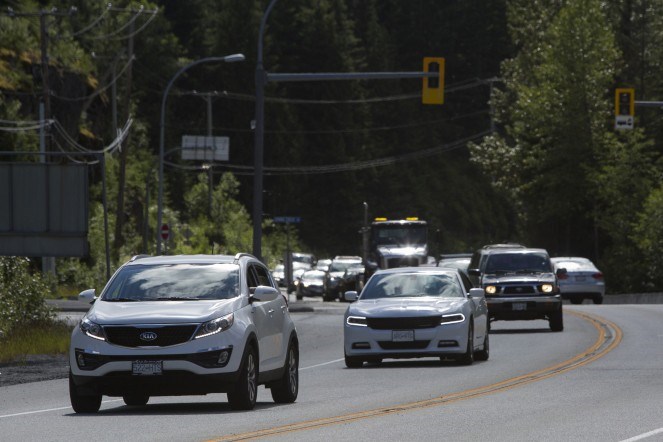at Tuesday's regular meeting of council, elected officials heard about the progress made on Whistler's environmental goals in the final quarter of 2019, and the focus sat squarely on two sectors that make up the bulk of the resort's emissions.
Part of the regular reporting on Whistler's ambitious Community Energy and Climate Action Plan (CECAP), municipal climate change coordinator Max Kniewasser first spoke to the work done at the end of the calendar year on the transportation front, the leading contributor to greenhouse gas (GHG) emissions in the resort.
"Transportation ... is a primary focus," he said. "It is the biggest source of emissions in our community but it's also a sector where there are significant opportunities in the short- to medium-term."
Kniewasser said the RMOW participated in a number of electric mobility events in the quarter, including the EVS Whistler conference where staff learned about the latest technologies and business innovations in the field, as well as a workshop in Vancouver, which was also attended by senior Whistler Blackcomb staff, that explored actions that local governments can take to mitigate climate change.
"No jurisdiction can do this by themselves, so this was to get key players in the room," Kniewasser said.
An electric vehicle charger at municipal hall was upgraded during the quarter to double charging capacity. Kniewasser added that municipal staff has also kept "close ties" with Natural Resources Canada and he's optimistic that the RMOW's funding application to add 28 new EV chargers will ultimately prove successful.
In November, council approved a pilot project to provide free transit to Whistler high schoolers, which began at the start of the year.
In the building sector, the second biggest contributor to local emissions, Kniewasser said he had advanced discussions with several of Whistler's largest hotels and other commercial buildings to identify opportunities for reducing energy use.
"We're finding that there's quite a bit of opportunity in these hotels and bigger buildings and also quite a lot of interest in capitalizing and taking advantage of these opportunities," he noted.
During the quarter, there were also internal discussions at municipal hall on ways to incorporate the Energy Step Code to so-called "Part 3" buildings, which include larger complexes such as shopping malls, for instance. Kniewasser said opportunities to limit the direct heating of outdoor spaces have also been explored.
"That's beyond just patio heaters, which get a lot of attention, but there are other things happening," he said.
Kniewasser also touched on other efforts in the quarter, including the completion of wildfire fuel-thinning projects in Kadenwood and along the western boundary of Lost Lake Park and the review of a feasibility study to install solar photovoltaic panels at Meadow Park Sports Centre.
Overall, the municipality made progress on 54 of the 135 action items in the CECAP during the quarter. Kniewasser added that the RMOW has also tapped the Whistler Centre for Sustainability to assist in developing a strategy that will see the CECAP reorganized to prioritize the "big moves" that will have the most impact on environmental targets.
Muni updates bike, skateboard policy in pedestrian zones
Also at Tuesday's meeting, Whistler council gave first three readings to a bylaw amendment that adds scooters, e-scooters, Segways and hover boards to the list of personal mobility vehicles banned from the Village Stroll and Upper Village.
Originally adopted in 1992, the existing bylaw prohibits bicycles and skateboards from pedestrian-only zones. The new devices were added to coincide with their rise in popularity over the years.
The original bylaw also allowed for the impoundment of bikes and skateboards, but the amendment removes that langauage as the RMOW's lawyers had advised it was unlawful.
Mobility aids for the disabled are still permitted.
Coun. Ralph Forsyth asked if a skateboard had ever been impounded at municipal hall.
"I remember we did back in the day," said protective services planning analyst Kevin Creery. "It wasn't a pleasant experience for anyone involved."




